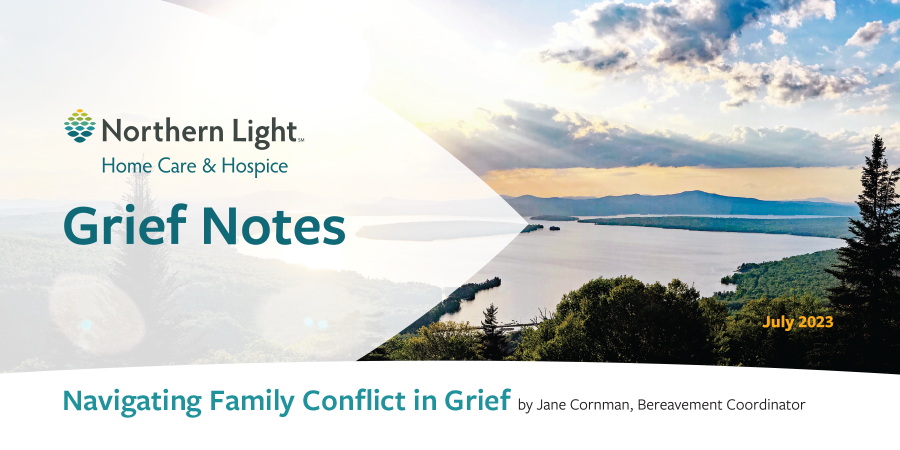LATEST NEWS
We are all just walking each other home. - Ram Dass
LATEST NEWS
We are all just walking each other home. - Ram Dass

“There is a sacredness in tears. They are not the mask of weakness, but of power. They speak more eloquently than ten thousand tongues. They are the messengers of overwhelming grief, of deep contrition, and of unspeakable love.”
- Washington Irving
Say the word “family,” and all sorts of images come to mind. There are strong, mutually supportive families, families that struggle with conflict and broken relationships, and nonbiological families that people make when their biological families are not available to them. Regardless of the flavor of your family, you may be taken by surprise by how the death of a loved one affects it.
We all make assumptions that seem logical. Strong, supportive families may assume that they can look to each other for mutual support and understanding since they’re all grieving the same person. Conflicted families may assume that the death of a person at the center of the conflict will help fix it. In some cases, these assumptions are true. But more often, families find themselves struggling with some common challenges that can stir up conflict. These include:
While these challenges can be alarming, there are some simple principles that can help:
Working with a neutral, trustworthy, and understanding therapist or grief support specialist, or joining a grief support group, will enable you to meet your needs and help you cope better with your family’s challenges. As always, if you are struggling with any aspect of your loss, our bereavement coordinators are here for you. Please reach out and take advantage of the support that we can provide!
This fall, six-week Grief Support Groups will be offered in all areas of The County based on interest. We require a minimum of five participants in an area to hold a Grief Support Group, and each group is limited to twelve participants. Please contact George McLaughlin, Bereavement Coordinator for Northern Light Home Care and Hospice, at 207-498-9039 or by email at gmclaughlin@northenlight.org if you are interested or desire more information about these groups.